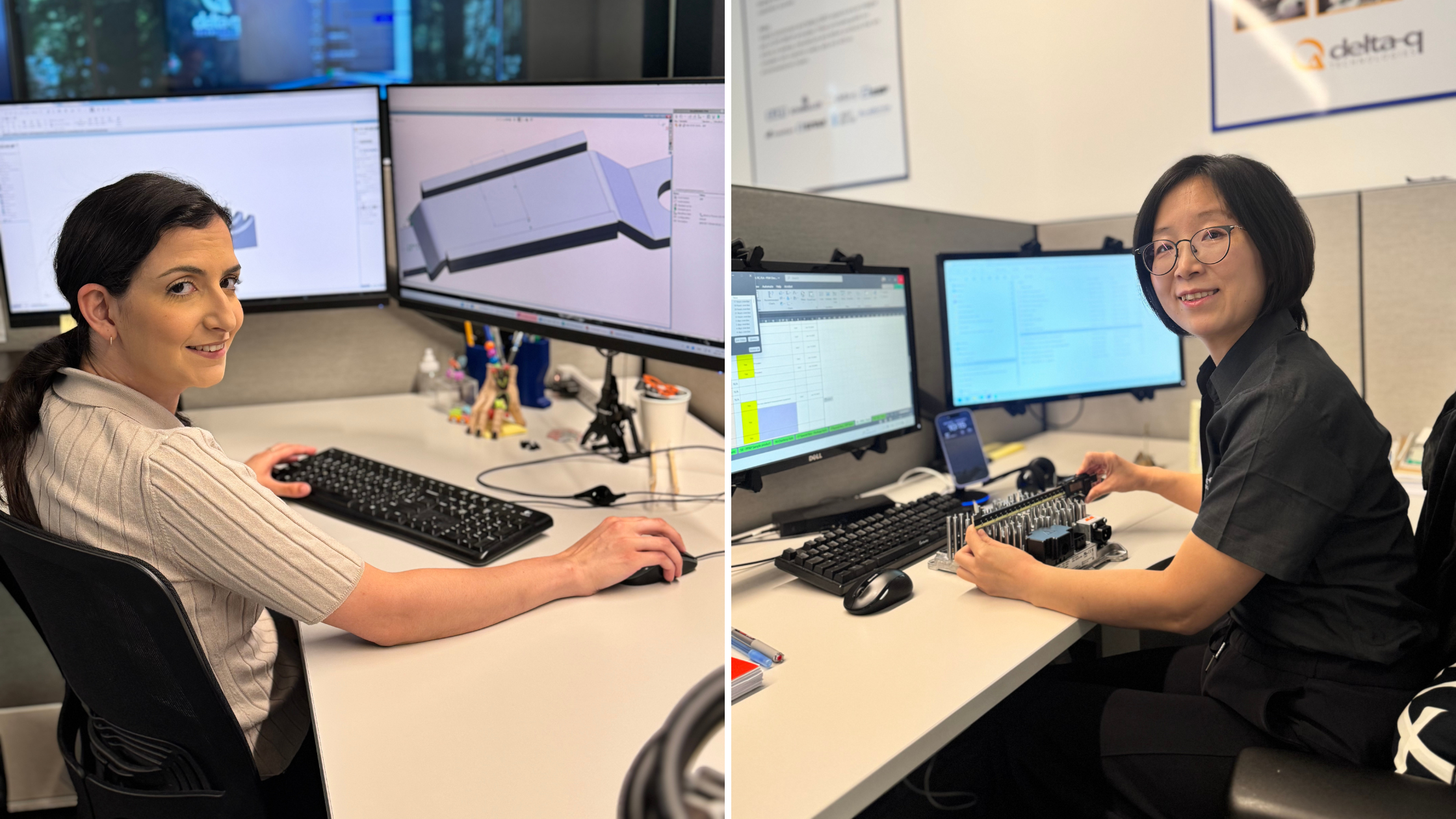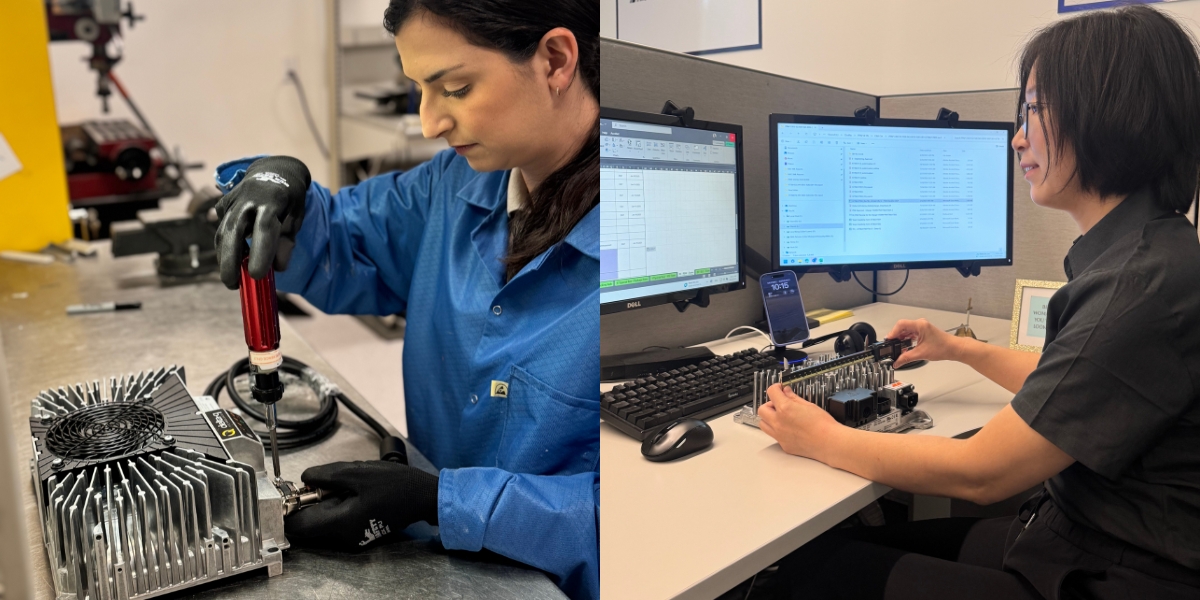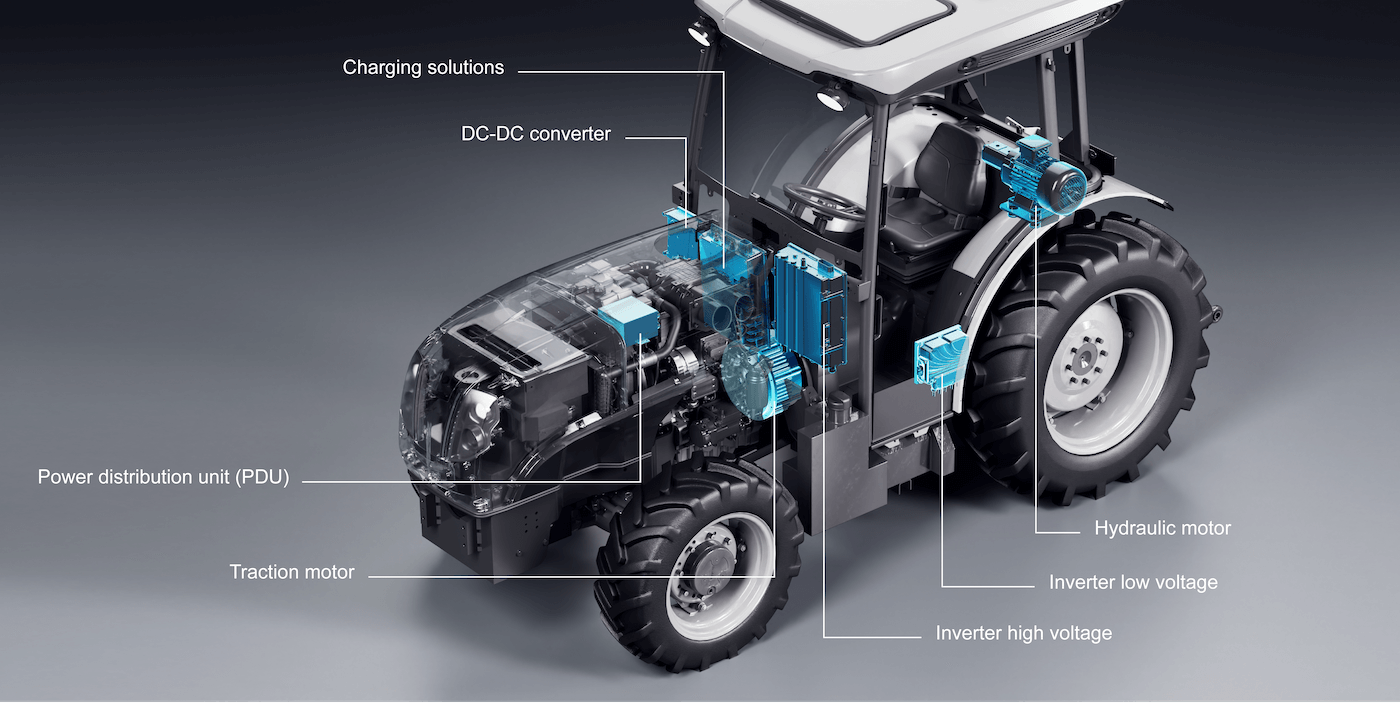June 23 marks International Women in Engineering Day, a global celebration of the achievements and contributions of women in the engineering field. It’s also a chance for us to recognize the incredible women at Delta-Q Technologies—like Talia Babich and Lucy Wang—who are driving innovation in battery charging solutions for electric vehicles and industrial equipment. We sat down with them to hear about their journeys into engineering, the challenges they’ve overcome, the impact they’re making today, and why representation in this field truly matters.
Can you please introduce yourself and what your role at Delta-Q is?
Talia Babich: I’m Talia Babich, and I’m a Mechanical Engineer at Delta-Q Technologies. My role is dynamic, covering products lifecycle, from initial concept and design through to successful mass production. I thrive on collaboration, working closely with various departments across the company, particularly in crucial areas like failure analysis and problem-solving. One of the aspects I love most about my work is the constantly evolving environment – whether I’m at my desk brainstorming designs, conducting experiments in the lab, or visiting manufacturing lines worldwide, every day brings new opportunities and challenges.
Lucy Wang: My name is Lucy Wang, and I am a Quality Engineer at Delta-Q. I’m passionate about driving continuous improvement, ensuring customer satisfaction, and delivering meaningful results in my work.

What inspired you to choose engineering as your career path?
Talia Babich: My journey into mechanical engineering was fueled by a deep curiosity about how things work, a desire to improve them, and a fascination with the “why” behind their functionality. I’ve always possessed what I like to call “X-ray vision” thinking—an ability to peer into the core of a problem and uncover its underlying mechanisms. This, combined with a creative drive and a passion for bringing ideas to life from scratch, made mechanical engineering the natural path for me. It’s a field that demands a holistic approach, often positioning us as all-in-one problem solvers who play a pivotal role in product development and critical decision-making.
Lucy Wang: When I was a young girl, I was always curious about how things worked and how they could be improved. I still remember the joy I felt as a child when I successfully took apart and reassembled my alarm clock. In school, math and science were my favorite subjects. I especially enjoyed being part of the science club, where I got to tinker with quirky innovations—like a solar-powered fan hat, which was quite useful during the summer. That passion and curiosity naturally led me to pursue electrical engineering at university and ultimately choose engineering as my career path.
Can you share a challenge you’ve faced as a woman in engineering and how you overcame it?
Talia Babich: As an engineer, I’ve learned to navigate challenges in my way to achieve my goals. A special challenge I faced was a subtle need to assert my technical expertise in environments where I might initially be underestimated. My strategy was simple: I let my work speak for itself, consistently demonstrating capabilities through great results. This approach, coupled with a strong network of allies, ensured my contributions were recognized. This commitment also defined my approach to a critical professional challenge: optimizing the balance between ambitious design goals and practical manufacturing constraints. When an innovative concept faced production roadblocks, I initiated early cross-functional dialogues. By engaging manufacturing and supply chain teams, we found that crucial sweet spot where innovation meets feasibility, ensuring efficient and scalable production.
Lucy Wang: Early in my career, one challenge I faced was being the only woman engineer in the room during discussions. Sometimes, I felt like I had to prove myself more than others. I built my confidence by thoroughly preparing, not being shy to ask questions, and seeking mentors who supported my growth. Over time, my work began to speak for itself, and I became more comfortable sharing my ideas and leading projects.
What has been your proudest moment or achievement in your engineering journey so far?
Talia Babich: I am incredibly proud to share that throughout my career, I have designed over 25 products from conception to mass production, which are now being successfully manufactured and sold globally. Witnessing these ideas transforming from initial sketches into products that impact lives is profoundly rewarding. It’s a tremendous feeling to contribute so significantly at a relatively young age, knowing that my work and ideas are making a real difference in the world.
Lucy Wang: There are lots of moments I am proud of in my engineering journey, like the successful launch of a new product or a new production line or seeing continual improvements in the shape of the PDCA cycle (Plan-Do-Check-Action). Every small step forward matters, and those moments keep me motivated to push boundaries.



What advice would you give to young girls who are interested in science, technology, engineering and mathematics (STEM) fields?
Talia Babich: To young girls who are considering a future in STEM fields, my advice is simple: always remember that we are here to create a better world. Let that powerful purpose guide your decisions and light your way. Know that you are inherently capable and strong enough for this mission—and most importantly, never forget that you are not alone on this exciting journey. The STEM community is growing, and there are many who will support and uplift you.
Lucy Wang: Stay curious, and don’t be afraid to ask questions. Look for mentors who can support your growth. STEM can be challenging for everyone, no matter who you are, but you already have what it takes to reach your goals.
How do you see the role of women evolving in the future of engineering?
Talia Babich: Looking ahead, I am incredibly optimistic about the increasing presence of women in mechanical engineering. I truly believe it is one of the most creative, dynamic, and fascinating professions within the tech industry. Women bring a unique and invaluable perspective—particularly their ability to see the bigger picture, delve deeper into root causes, and tackle complex problems with a holistic approach. It’s only a matter of time before we see more women not only joining but also succeeding and leading in this profession, and across all fields of engineering and technology.
Lucy Wang: I’d like to quote Ruth Bader Ginsburg’s famous response, “When there are nine,” when asked about the appropriate number of women on the Supreme Court. I believe women will continue to push boundaries and add true value in engineering. Dream big and stay curious!




